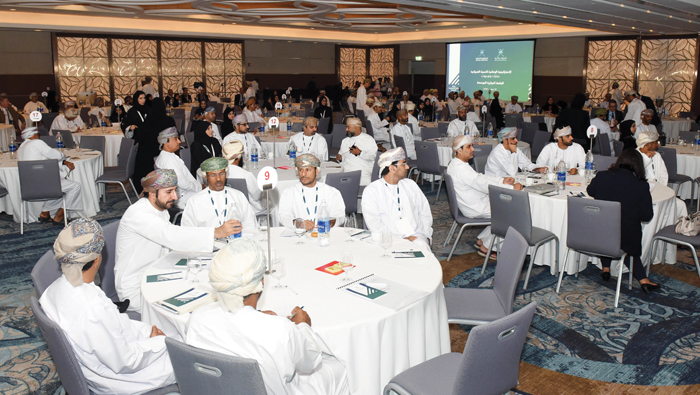
Muscat: A workshop on the Strategic Spatial Alternatives was organised yesterday by the General Secretariat of the Supreme Council for Planning (SCP), as part of the development of the first Oman National Spatial Strategy (ONSS), set off.
The workshop aims to review the alternatives for the Spatial Strategy at the national level and evaluate each alternative in light of a set of basic inputs.
The two hundred fifty participants represent the government sector, the private sector, the civil society, academics and specialists in this field.
The workshop will be followed by engagements with their Excellencies the Governors, and both the State Council and the Majlis Al Shura to take their views in order to analyse and present the outcomes from the various levels of stakeholders to the Government, which will make the final decision on the most appropriate spatial development alternative.
The ONSS project has gone a long way with the completion of its first and second phases, which focused on data collection and analysis of the current situation with respect to sectors and issues related to urban development, namely transport, infrastructure, population growth, environment, urban and rural development, and preparation for governorate-level ONSS.
The third and fourth phases aim at preparing a Spatial Strategy at the National level supported by spatial strategies for each of the 11 Governorates, with their own investment programmes and development tools for the next 20 years. Development of the alternatives for the strategy are based on a number of spatial informants.
These include the Population Model (OPSM), the macroeconomic model, the use of the national transport model prepared based on the analysis and evaluation of the results of the comprehensive national transport survey that covered all the governorates of the Sultanate.
Add to this collecting and analysing spatial information in the OPIS system, reviewing and analysing the current policies and sectoral strategies, and the harmonisation with the work underway for the Oman Vision 2040. The importance of the workshop is to present four Spatial Strategy alternatives at the national level.
They include a number of issues facing urban development, notably urbanisation, climate change, agriculture, water resources, economic diversification, transportation, infrastructure, environment and cultural heritage.